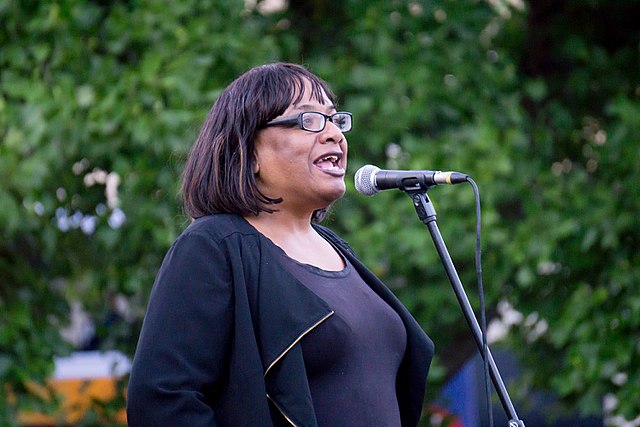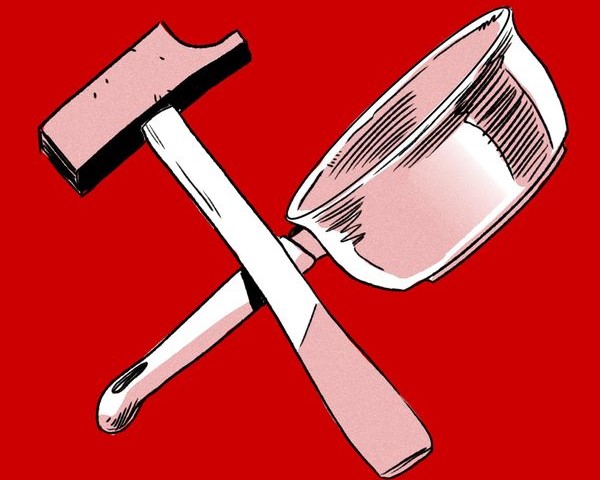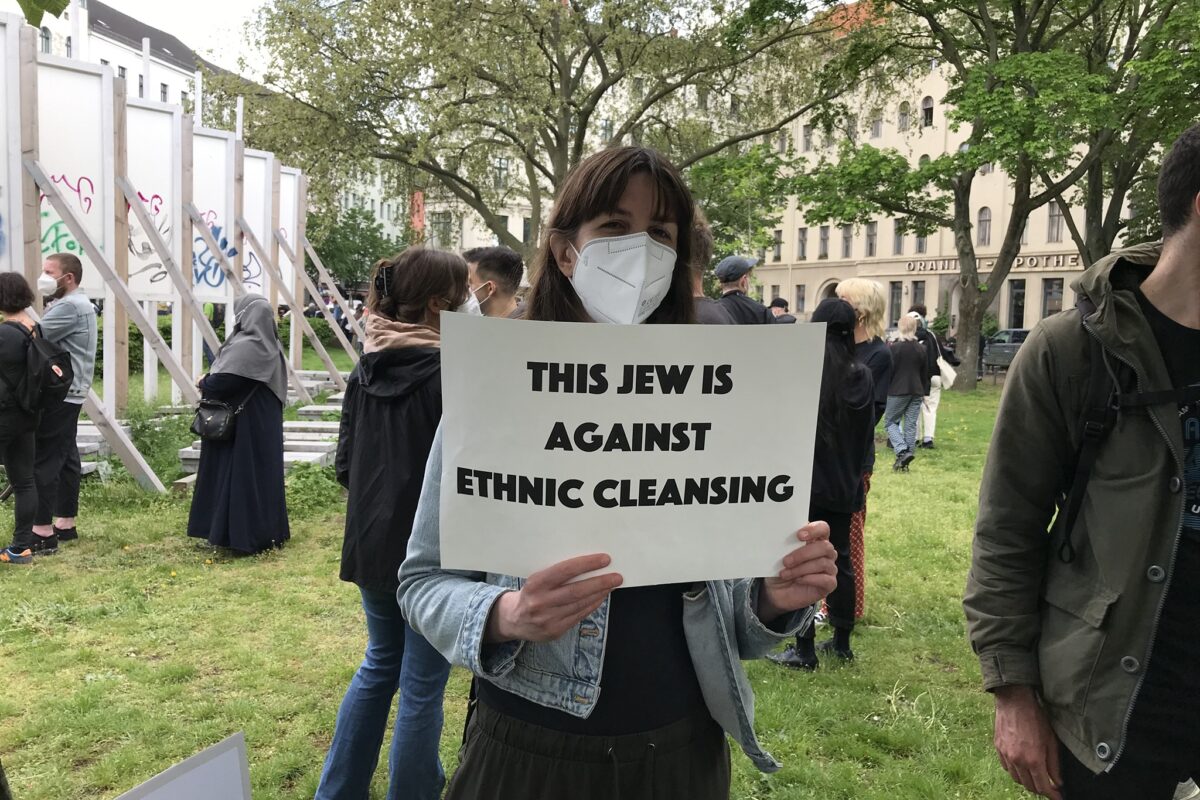Labour leader Keir Starmer has just sacked Dianne Abbott – Britain’s first Black, female MP, and one of the few remaining allies of Jeremy Corbyn inside parliament. The sacking came after a letter written by Abbott to the Observer which said that groups who are often still racialised as white like Jews and Travellers may encounter prejudice, but they do not suffer from racism.
Online reactions to the sacking have been mixed. On the one hand, there are people with a very justified antagonism to Starmer’s increasingly authoritarian politics, who uncritically defend the contents of Abbott’s letter. On the other, there are those – including Novara Media’s Ash Sarkar and Momentum founder Jon Lansman – who argue that Starmer was right to decree that Abbott can longer represent Labour in parliament. I believe that both of these arguments are wrong.
In this article, I want to argue that if we are to develop a coherent response to Abbott’s sacking, we need to understand that two discussions are running simultaneously – one within the anti-racism movement about how we best fight against racism, and a less nuanced attempt by Starmer to purge his party of any remnants of the Left.
What did Diane Abbott say?
According to Vox Political, Abbott “penned a letter that correctly pointed out that people of colour suffer racism more habitually than other ethnicities – but did it in a clumsy way.” The current dilemma would be easier to solve if this were all she said. This is what the Observer, printed:
“Tomiwa Owolade claims that Irish, Jewish and Traveller people all suffer from “racism”. They undoubtedly experience prejudice. This is similar to racism and the two words are often used as if they are interchangeable. It is true that many types of white people with points of difference, such as redheads, can experience this prejudice. But they are not all their lives subject to racism. In pre-civil rights America, Irish people, Jewish people and Travellers were not required to sit at the back of the bus. In apartheid South Africa, these groups were allowed to vote. And at the height of slavery, there were no white-seeming people manacled on the slave ships.”
Many of the points here are valid – but it is absolutely wrong to suggest that racism experienced by Irish people, Jews and Travellers is not qualitatively different to prejudice against red headed people.. Simply put, the Holocaust, the enforced Irish Famine, and systematic discrimination, are not the same as someone calling you “ginger”.
Abbott has since apologised for the letter, saying that it was an “initial draft” which had been sent for publication by accident. It is certainly not beyond the realm of possibility that the Guardian Media Group, which has fought a relentless battle against Corbyn and his supporters, knew this, and published the letter in bad faith.
Nonetheless, Abbott’s apology rightly says: “I wish to wholly and unreservedly withdraw my remarks and disassociate myself from them.” and that “it is completely undeniable that Jewish people have suffered [racism’s] monstrous effects, as have Irish people, Travellers and many others”
The reality of racism in modern Britain
Talk of a “hierarchy of racism”, where some forms of racism are worst than others, is dangerous, as it can divert us from the necessity of fighting all forms of racism together. But if you want to go down this road, let us look at how different groups currently experience racism.
The recently released Evidence for Equality National Survey reported that over a third of people from minority groups have experienced racist assaults. Unsurprisingly, people identifying as “Black Caribbean”, “mixed white/Caribbean”, “mixed white/Black African” and “Other Black” all suffered an above-average number of attacks (around 50% each), but the worst hit group was “Gypsies/Travellers” with 62%
According to Amnesty International, “millions of Roma live in isolated slums, often without any electricity or running water, and struggle to get the healthcare they need. Many live with the daily threat of forced evictions, police harassment and violent attacks Romani children also often suffer segregation in schools and receive a lower standard of education.”
Eastern Europeans have also been subjected to a particularly vicious form of racism. A report by the British Sociological Association starts: “the spike in hate crimes that followed the Brexit vote in the summer of 2016 serves as a poignant reminder that Eastern Europeans are still ‘not-quite-white’”
And while antisemitism has been manipulated for political ends, synagogues are still being desecrated, and it is clear that antisemitism is still a prevalent form of racism among white supremacists and Covid deniers, such as the Nazi Matthew Herrigan who printed leaflets claiming that “Jewish people were behind a Coronavirus hoax, controlled the media and were evil”.
This is before we start discussing possibly the most vicious form of current discrimination – Islamophobia – is not based on skin colour but on assumed beliefs of all Muslims – black, brown and white. Under these circumstances, the Left should be uniting to fight all forms of prejudice, not arguing amongst itself about which groups suffer the most discrimination.
The Tories’ terrible record
As a response to Abbott’s letter, Tory minister Grant Shapps said: “Once again, Jewish people have to wake up and see a Labour MP casually spouting hateful antisemitism.” Can we just look at what’s been happening in Shapps’s own party? Just two weeks ago, the Runnymede Trust published a report that argued, “Britain is not close to being a racially just society.”
Home secretary Suella Braverman recently proudly said that she “dreams” of deporting asylum seekers to Rwanda, in an act that even the Establishment paper the Financial Times (FT) called “an eerie 21st-century echo of a medieval idea” The FT article continues: “the government’s Rwanda rhetoric is designed to deflect attention from strikes, NHS waiting lists and a stagnating economy. ”
Tory peer Baroness Warsi has argued that Braverman’s “racist rhetoric” is putting “British Asian families at risk.” Braverman has continually used racist language about “small boats and grooming gangs”, and attacked “British Pakistani males, who hold cultural values totally at odds with British values” Her words have been echoed in Prime Minister Rishi Sunak’s attacks on “cultural sensitivity and political correctness”
Conservative councillor Andrew Edwards was recently suspended for saying that all white men should have a Black person as a slave, saying “It’s nothing wrong with skin colour, it is just they’re a lower class than us white people, you know.”
And I don’t know where to start with former Tory prime minister Boris Johnson, who still has hopes of making a political comeback. It has just been reported that Johnson told aides that “I am the Führer.” A party whose recent leader talks of Black people as “piccaninnies” with “watermelon smiles” and who referred to burka wearers as “letter boxes” cannot take the moral high ground in a debate about racism.
Labour’s miserable response
What about Labour? To say that the Labour Party under Keir Starmer has not responded well to this increase in racism would be a woeful understatement.
Rather than challenging the Tories’ racism against refugees, Keir Starmer has attacked them for not being racist enough. Confronting Rishi Sunak in parliament, Keir Starmer called for more deportations: “Last year, 18,000 people were deemed ineligible to apply for asylum. … prime minister, how many of them have actually been returned?”
One of the less publicized findings of the infamous Forde report was that “Black Labour staff suffer under the party’s ‘hierarchy of racism”, and that the ”’overwhelmingly white’ Labour Party was an unwelcoming place for people of colour” .
Taj Ali reports his own experiences in his University Labour society; “A few months into my first year, I attended a social event the society had organised. At this event, one individual made an Islamophobic joke directed at me. Another shouted ‘white power’, and a third did a Nazi salute.”
Diane Abbott has been deemed unsuitable to represent Labour in parliament. Unlike, say, Barry Sheerman, who tweeted that Jews Richard Desmond and Philip Green were given places in the House of Lords paid for by “silver shekels”. Labour took no action against Sheetman for his blatant antisemitism.
Compare and contrast with Labour’s treatment of Apsana Begum, the first hijab-wearing Muslim MP, or even of Abbott herself.
Labour and the police
At the end of March this year, the Casey reported concluded that the Metropolitan police is “institutionally racist, misogynistic and homophobic.” I don’t recall Labour officially acknowledging the report, but its release was followed by a sustained pro-police campaign by the party.
I still follow Labour’s facebook page (I’m there to read the below the line comments). Shortly after the Casey report was published Labour posted the following separate comments and memes in just 6 days:
-
“Labour’s Antisocial Behaviour Action Plan: 13,000 extra neighbourhood police and PCSOs on our streets” (3 April)
-
“Labour is the party of law and order. “(3 April)
-
“Labour will bring back neighbourhood policing and tackle antisocial behaviour.” (3 April)
-
“Labour will put 13,000 neighbourhood police and PCSOs back on the beat” (4 April)
-
“Labour will rebuild neighbourhood policing” (4 April)
-
“A Labour government, with Keir Starmer as Prime Minister, will make Britain’s streets safe.” (4 April)
-
“With Keir Starmer’s leadership, Labour will prevent crime, punish criminals, and protect communities from antisocial behaviour.” (5 April)
-
“Labour will make Britain’s streets safe.” (5 April)
-
“A Labour government will prevent crime, punish criminals, and protect communities” (7 April)
-
“Labour will bring back neighbourhood policing to keep communities safe.” (7 April)
-
“Labour will reform the police and criminal justice system and put 13,000 extra neighbourhood police officers and PCSOs back on our streets.” (8 April)
-
“Labour will rebuild neighbourhood policing to prevent crime, punish criminals, and protect communities.” (8 April)
-
“The next Labour government, with Keir Starmer as Prime Minister, will make Britain’s streets safe.” (9 April)
Novara media reports that 1,741 people have died in police custody since 1990. Not a single police officer has been convicted for these deaths, nor of the 74 disproportionately BAME people fatally shot by police since 1990, Under these conditions, Labour’s law and order platform is a green light for even more police harassment of minorities under a future Starmer government.
Worse, while the right wing press was obsessing about fictional “Asian grooming gangs”, Labour produced an advert with the false claim: “Do you believe that adults convicted of sexually assaulting children should go to prison? Rishi Sunak doesn’t.” When challenged that the ad was playing on racist tropes, Labour doubled down, with Keir Starmer saying “I stand by every word”.
So, how should socialists respond?
Diane Abbott’s suspension has little to do with her misguided comments, and her track record on fighting racism is much better than nearly all of her accusers. She has been one of the few MPs who has actually challenged racism. Indeed, she has been the victim of disproportionate racism herself – receiving 45.14% of all abusive tweets to candidates in the run up to the 2017 Election.
The Forde report noted that “The criticisms of Diane Abbott are not simply a harsh response to perceived poor performance – they are expressions of visceral disgust, drawing on racist tropes, and they bear little resemblance to the criticisms of white male MPs elsewhere in the messages.”
The current pile on against Abbott from the media and politicians of all parties has nothing to say about the much more dubious record of most of her accusers. Supporting her suspension only serves to strengthen the grip of the bureaucrats who are removing the slightest trace of opposition to Keir Starmer’s right wing neoliberalism from the party.
Nonetheless, the discussion generated by her letter and subsequent sacking has provoked two important discussions which we must address as a movement. Firstly, how do we build the unity which we need to oppose all forms of racism? Secondly, is their any future for building this unity within a Labour Party that is keener to sustain the racists in its ranks than principled fighters like Diane Abbott?




